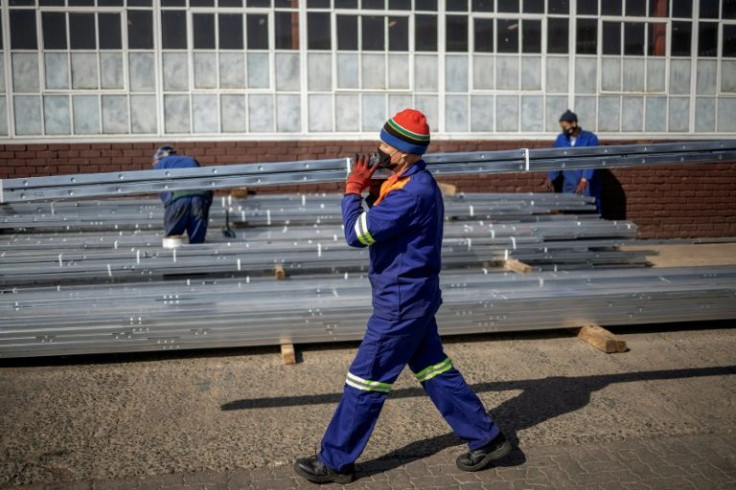South African Businesses Do The Spadework To Survive Likely Recession Next Year

When U.S. President Joe Biden hosted the U.S.-Africa Leaders' Summit in Washington this month it was neither food security nor public health that dominated the talks, unlike in the past summits since former president Barack Obama started it in 2014.
At the three-day conclave this year, the conversation was, in fact, centered around technology and Biden unveiled several tech-related initiatives for Africa.
On the sidelines of the summit, secretary of state Antony Blinken hosted African entrepreneurs only to assure them of the Biden administration's long-term commitment to Africa.
The U.S. efforts to integrate Africa with the global digital economy are going in full swing. As the integration is taking place in a spectacular space, similar things are happening both in the U.S. and Africa as they are getting ready to face a likely economic recession next year.
As U.S.-based tech firms like Twitter, Meta, and Microsoft are doling out pink slips to their employees, their counterparts in South Africa, Africa's second-largest economy, are following suit.
E-commerce major Amazon and printer major HP have announced plans to sack more than 20,000 and up to 6,000 employees, respectively.
Worldwide, 965 tech firms have axed more than 150,000 employees this year, surpassing the meltdown days of 2008.
As the U.S. big ticket firms are doing their spadework to cope with the impending economic slowdown, so does South Africa's mega-corporations.
On Nov. 1, precious metals miner Sibanye-Stillwater declared plans to axe more than 2,000 jobs at its gold mines in South Africa as part of a restructuring plan. The Johannesburg-based miner, the largest employer in the South African mining sector, is holding talks with labor unions to iron out the differences before showing the door to employees.
South Africa's major banks are also axing jobs to adapt to the digital era as fintech apps have ensured that lean bank branches do not need large numbers of employees.
In the latest CEO Outlook for South Africa, KPMG, a global financial services firm, stated that more than 80 percent of CEOs in South Africa have put in place a hiring freeze in the next few months.
According to KPMG, companies are re-evaluating their strategies ahead of the impending recession.
In the KMPG survey, 36 percent of South African CEOs said they have stopped hiring new employees, in line with the 39 percent of CEOs globally who have initiated similar steps.
Hiring freezes and layoffs have become the order of the day in South Africa and abroad in 2022 due to the possibility of an economic meltdown in 2023 as companies see layoffs and freeze on hiring as the safe bet to navigate uncertain economic times.
A reduction in the number of jobs has become the need of the hour for many South African firms after they have implemented drastic tech changes at lightning speed which have simplified production and made it more efficient to survive the new digital realities.
The pandemic norm of work-from-home is also adding to the hiring freeze in South Africa. The country has become an ideal location for overseas businesses to implement the work-from-home norm due to time zones, language, and cost, which poses a threat to local employers who are competing for the same talent.
South Africa has one of the highest unemployment rates in the world. The state-owned Statistics South Africa said the number of unemployed people reached 7.725 million people in the July-September period, compared with 7.994 million in the earlier three months. Youth unemployment is hovering over 45.5 percent, which financial experts labeled a ticking time bomb.
At 35.3 percent in the fourth quarter of 2021, South Africa witnessed the highest unemployment rate during the pandemic since the quarterly labor force survey started in 2008.
The world's mega firms have a reputation for adding to their fortunes during the crisis as Jeff Bezos, CEO of Amazon, and Elon Musk, the owner of Twitter, demonstrated through the 2020-21 Covid-19 pandemic.
According to the Africa Wealth Report 2022 by Henley Global, private wealth on the continent will rise by 38 percent over the next decade.
Yet another recession may further add to the fortunes of mega-corporations owned and manned by billionaires, but for South Africa, a likely slowdown in 2023 is beyond its current means.





